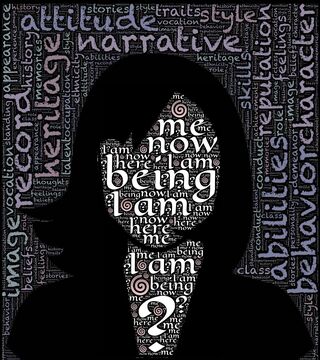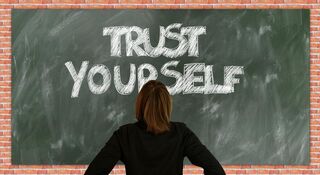Identity
Exploring Loss of Identity—Post-Stroke
What to do when I’m not sure who I am now?
Posted January 9, 2021
What Is Self-Identity?

We all possess a certain image of ourselves. We form our identity from the labels we put on ourselves, based on the roles we undertake and the activities we complete. Sometimes, we take our identity cues based on how others around us, define us. Self-identity is a combination of personality traits, abilities, physical and mental attributes, career choices, interests, hobbies, and the roles we select to identify ourselves.
You may see yourself as a wife/husband, a mother/father, a daughter/son, an employee, a friend, a community member, etc. Your identity forms your sense of individuality, and it provides you with confidence in who you are. You may be able to easily list the traits that make you unique.
Some examples of traits could include your sense of humor, your ability to problem solve, your level of empathy, honesty, and loyalty, your urge to help others, your love of music or other arts, a strong sense of independence, a desire to explore the world, and so on.
Your social connections also help to define your identity. You often choose to connect with individuals and groups that share common goals, personal characteristics, education, career interests, or religious beliefs. These interactions help shape the way you think and feel, and what you value. A strong sense of identity brings comfort and security.
How Can a Stroke Interfere With Your Sense of Self?
A stroke can be a gut-punch to your self-identity!
Your stroke may affect many aspects of your life including the loss or change of career and a modification of many of your previous roles. Ultimately, this can result in changes in how you view yourself. You may also lose many of the important social connections that you’ve made, further adding to the identity challenge.
This gap may lead you to question much of your identity. Who am I now? What do I do now? Where do I fit in? Prior to my own stroke, as a nurse, wife, and mother, I felt valued, helpful, independent, and confident in my life’s purpose. After the stroke, I felt lost, useless, frightened, insecure, stupid, lazy, and unreliable. I went from being kind, caring, and happy, to angry and miserable. This sudden loss of identity led to increased anxiety, low self-esteem, depression, and no self-confidence. I felt like I was a burden to my family, and I felt trapped in my home with rare social interaction.
When you lose your identity and sense of self, you are tempted to turn to others to feed your self worth. Other people’s views and opinions about you may suddenly become extremely important, and you may find yourself seeking reassurance and praise from others to feel okay about yourself. Your emotional wellbeing may rely on this validation but such a dependency on external validation is extremely detrimental. The reality is that your sense of self should not come from other people but come from within. The most important relationship you will ever have is with yourself.
Rediscovering Your Identity

Becoming aware that you have lost your identity is the first step toward finding it again. You can’t begin to repair something until you acknowledge that it is broken.
Psychotherapy and counseling can help you to answer the “Who am I?” question. It can also help you to break the need for validation from others, begin to lose the labels you have assigned yourself, and assist you to rediscover your true identity.
- Pre-stroke, I assigned myself the label “nurse” with the basic value “to help people.”
- Post-stroke, I was no longer a practicing nurse, but could fulfill my need to help people by being a stroke mentor, which is very rewarding.
I eventually rediscovered the same kind and caring person I’d always been. I just needed to learn to believe in myself and be confident in my true identity as I began to move forward.
- Begin to look inward and explore you.
- Think about what qualities and characteristics define you and what values are important.
- Experiment with ways to cope and things that bring you happiness.
- Find support, with friends, family, and support groups.
- Become more aware of your feelings and begin to recognize when you’re turning to others for validation.
- Think about how you spend your free time. What interests or hobbies do you enjoy and why are they important to you? Why did you develop these interests in the first place? Did you choose them because of your identity, or was your sense of self shaped by these interests? For example, do you like to garden because part of your identity is nurturing; or did part of your identity become a nurturer because you started gardening?
By understanding the answers to these questions, you can gain insight into who you are at the core and allow yourself to explore other options for your new identity.
When you experience a seismic shift, it can be an opportunity to reassess and re-evaluate your life. Are your current goals and values the same as they used to be? If not, it may be time to consider new goals and values and start to work on new habits that will help you get to where you want to be.




